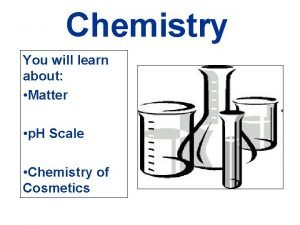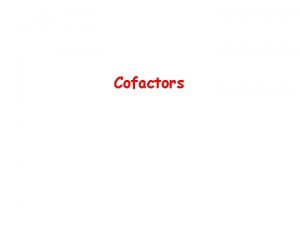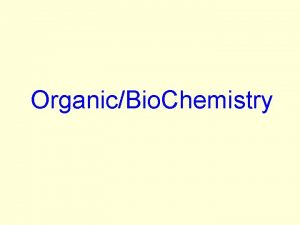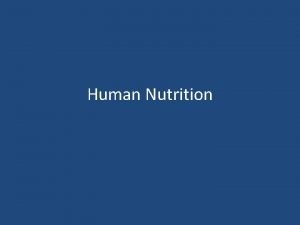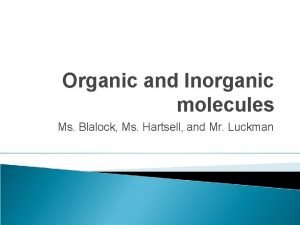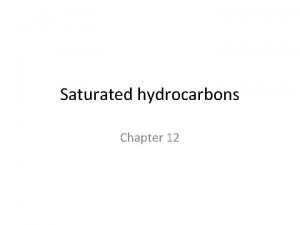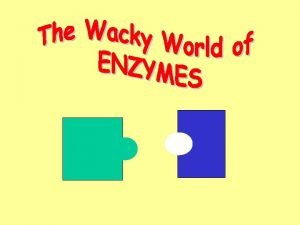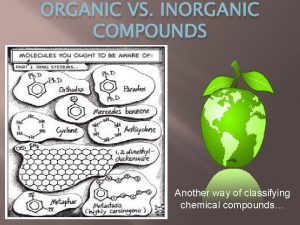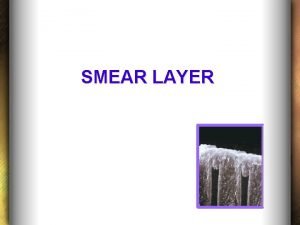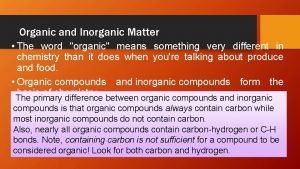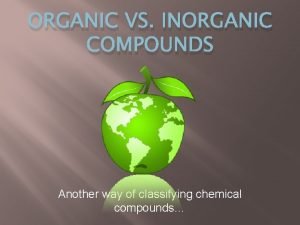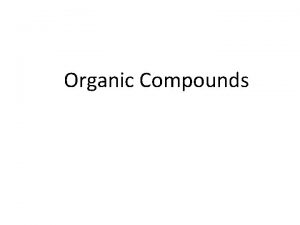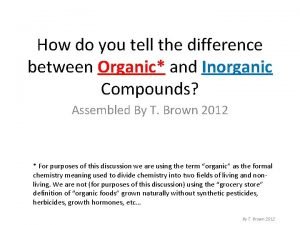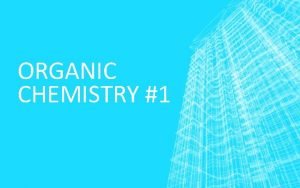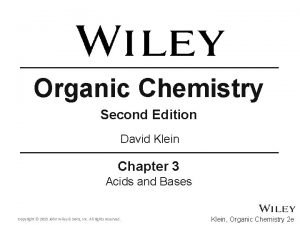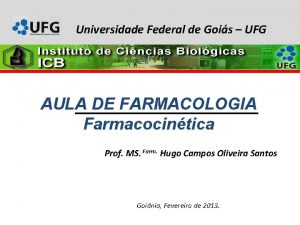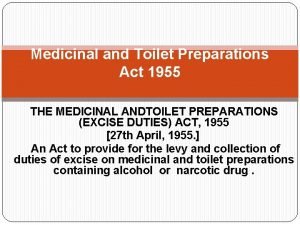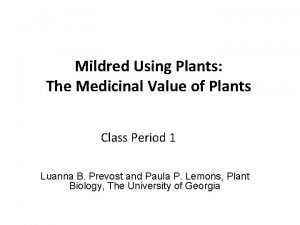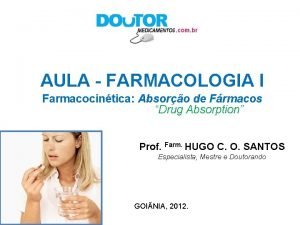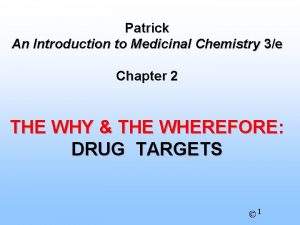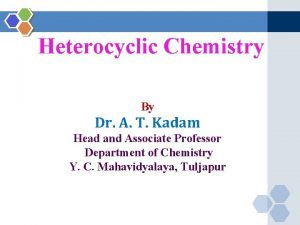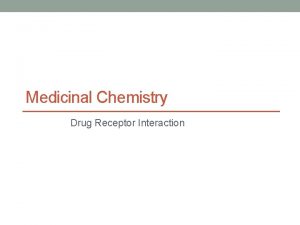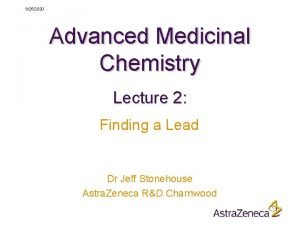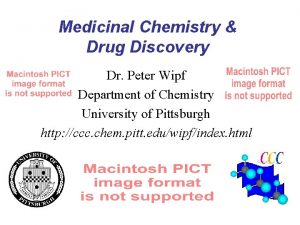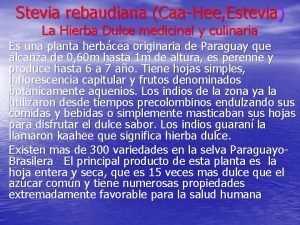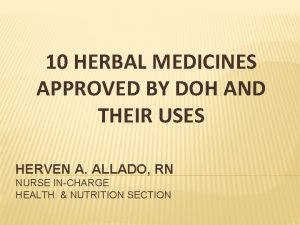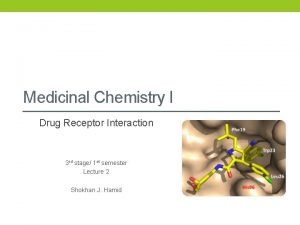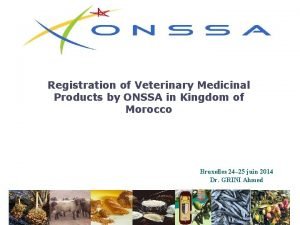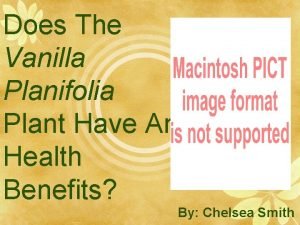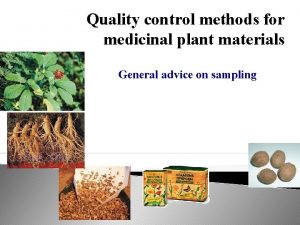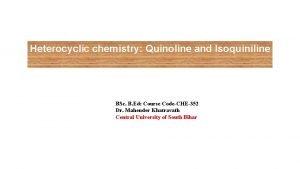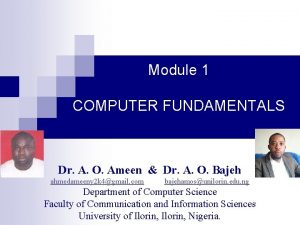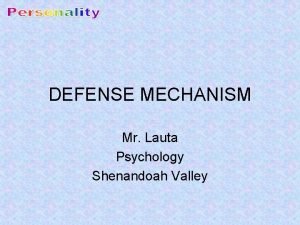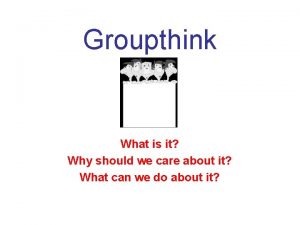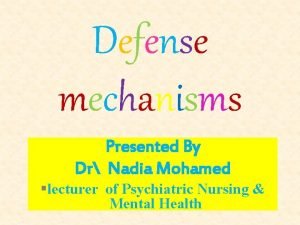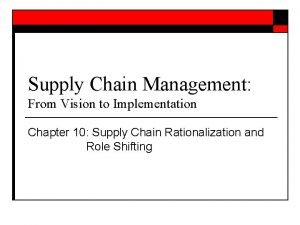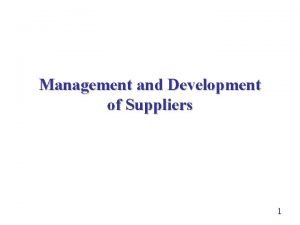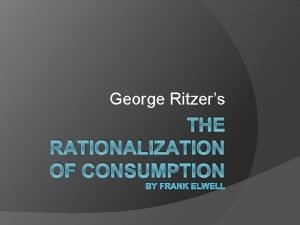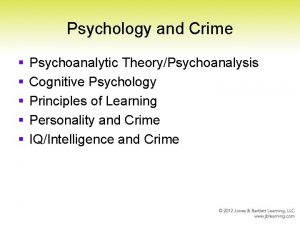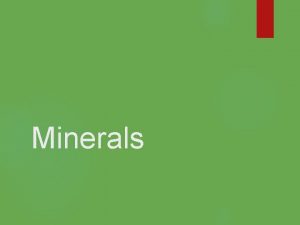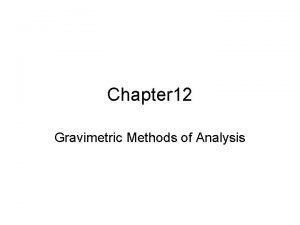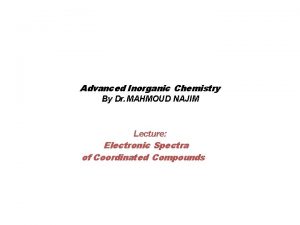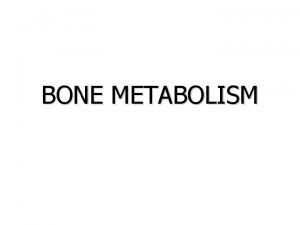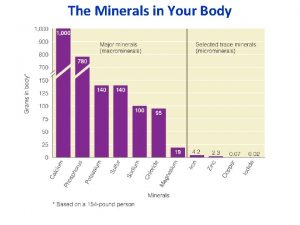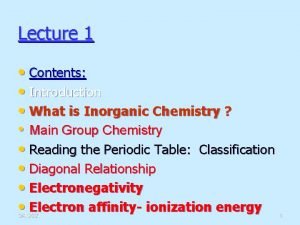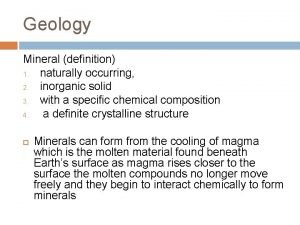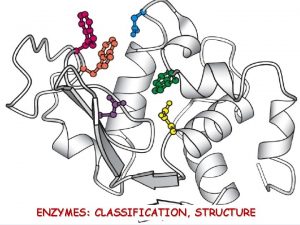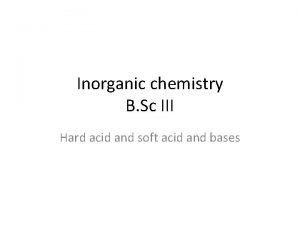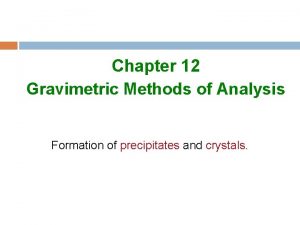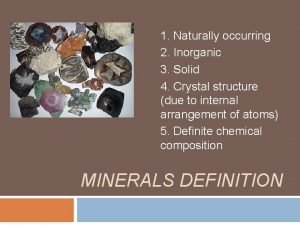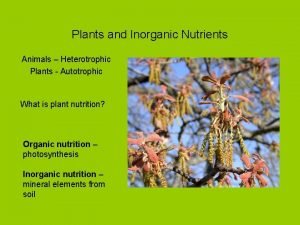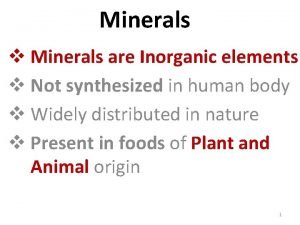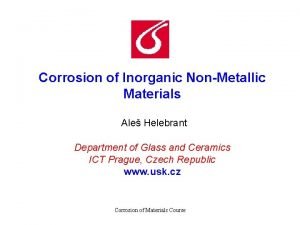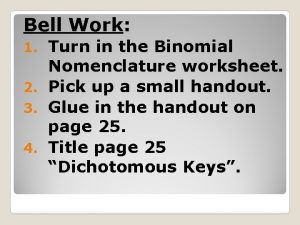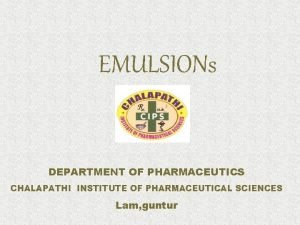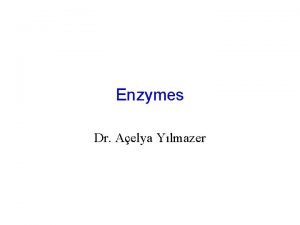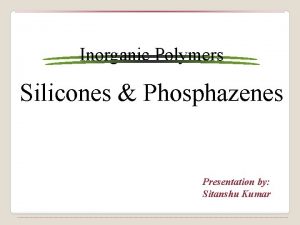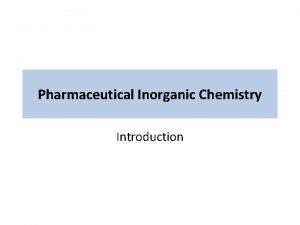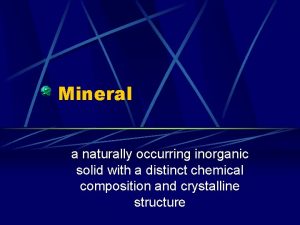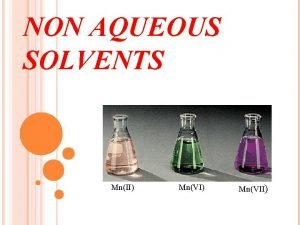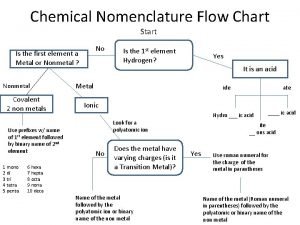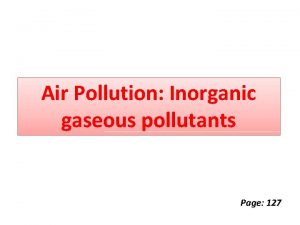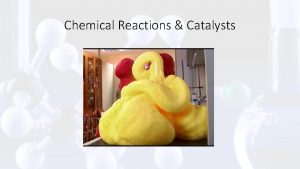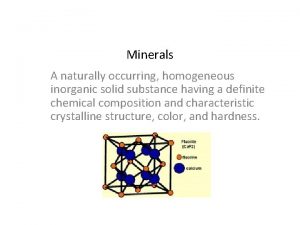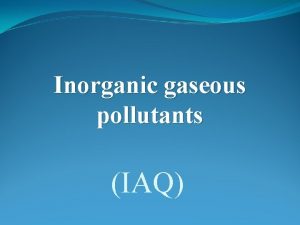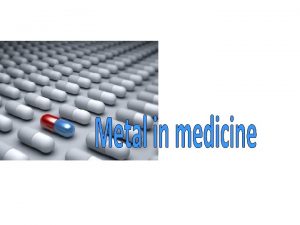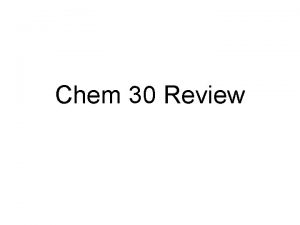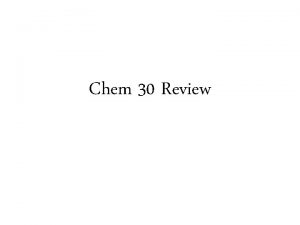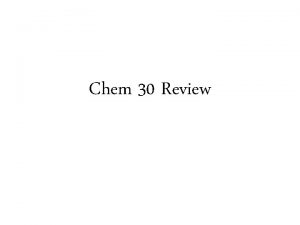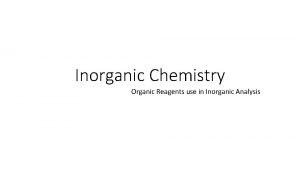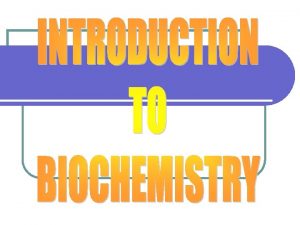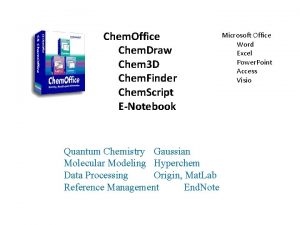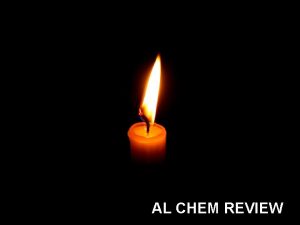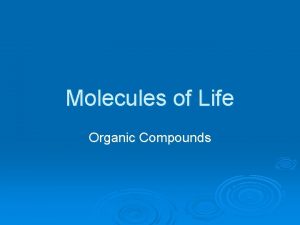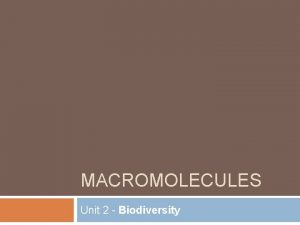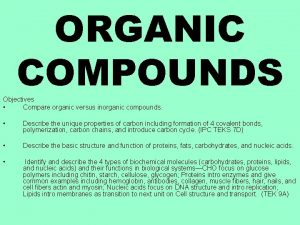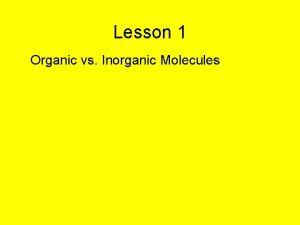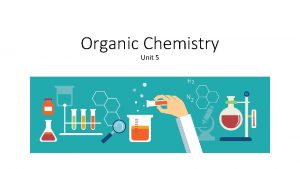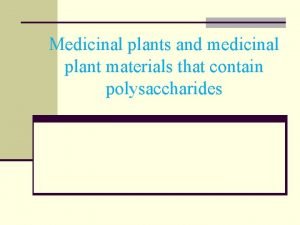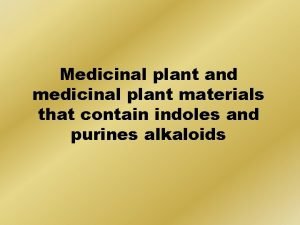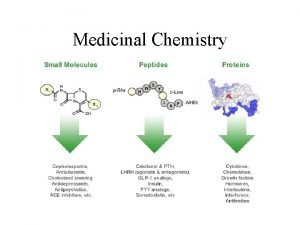RATIONALIZATION Module 1 Organic Chem Inorganic Chem Medicinal





































































































- Slides: 101

RATIONALIZATION Module 1 (Organic Chem, Inorganic Chem, Medicinal Chem)

1. It is the only unicyclic Antidepressant: a. Lexapro -escitalopram b. Prozac - fluoxetine c. Wellbutrin - bupropion d. Remeron – mirtazapine

Thenard’s blue Reaction from: Aluminum heated in Sodium carbonate in Cobalt nitrate soln 2. The ion that gives positive result to Thenard’s Test causes: a. Reye’s syndrome b. Minamata diseases c. Wilson’s disease d. Shaver’s disease -

3. A fourth generation Cephalosporin: a. Axera – cefepime b. Rocephin – ceftriaxone c. Zinacef – cefuroxime d. Monowel – cefoxitin

4. A rule that states that when stress is applied to a system in equilibrium, the equilibrium shifts to relieve stress: a. Law of Conservation of Mass b. Law of Definite Proportion c. Law of Mass Action d. Le Chatelier’s Principle

5. This element is present in Insulin: a. Co b. Zn c. Mg d. Fe e. NOTA

6. It is administered in an ice-cold condition to lessen its disagreeable bitter taste; parenterally used as an anti convulsant: a. Glauber’s salt b. Rochelle salt c. Epsom salt d. Purgative lemonade

7. The ion that gives a purple solution with Sodium bismuthate: a. Cobalt b. Ferrous c. Manganese d. Ferric

8. The sum of the number of protons & neutron: a. Mass number b. Atomic weight - average mass of atoms of an element c. Isotope - atoms of the same element can have different numbers of neutrons d. Atomic number - # of protons present in nucleus

Q#49 9. Principle which states that it is impossible to accurately determine simultaneously the position & motion of an electron: a. Pauli’s exclusion principle The Aufbau (building up) Principle: b. Aufbau principle an orbital cannot take more than 2 electrons. c. Heisenberg principle d. NOTA

10. Acids have the following properties except: a. p. H below 7 b. acceptor of protons c. neutralizes base d. Sour taste

11. Which of the ff is/are considered slow acetylators: I. Eskimos II. Egyptians III. Filipinos IV. Mediterranean Jews a. b. c. d. e. III only I and II only III and IV only I and III only Eskimos and Orientals are rapid acetylators

12. Which of the ff is/are parent drug/s? I. III. IV. Digitoxin Hydrocortisone Primidone Propranolol a. b. c. d. e. I and II only III and IV only I, III, and IV only AOTA

13. An agent that prevents infection by the destruction of pathogenic microorganisms when applied to inanimate objects: a. Antiseptic b. Disinfectant c. Antibiotic d. Sanitizer e. Pesticide

14. A dye used as an antidote for cyanide poisoning: It promotes conversion of a. b. c. d. e. Malachite green Methylene blue Phenolphthalein Gentian violet NOTA hemoglobin to methemoglobin, which because of its high affinity for cyanide ion diverts it from inactivating Cytochrome C

15. The antibiotic that binds with Ribosome 30 s subunit: a. b. c. d. e. Chloramphenicol Tetracycline Erythromycin Lincomycin Penicillin 30 S A-minoglycosides T-etracycline

16. Structure of the penicillin molecule shows it to contain a fused ring system which is the: a. b. c. d. e. β – lactam thiazolidine structure β – lactam penam structure 6 – Aminopenicillinanic acid β – lactam phenylpenicillin ring β – lactam alkylamino ethyl ring

17. Tienam is a combination of: I. III. IV. Piperacillin Cilastatin Tazobactam Imipenem a. b. c. d. e. II and IV I and II I and IV II and III

18. Vigocid is a combination of: I. III. IV. Piperacillin Cilastatin Tazobactam Imipenem a. b. c. d. e. II and IV I and II I and IV II and III

19. The 1 st aminoglycoside antibiotic to be used in chemotherapy: a. b. c. d. e. Amikacin Gentamicin Streptomycin Kanamycin Neomycin

20. It is used primarily for treating polycythemia vera: a. b. c. d. e. Hexamethylamine Asparaginase Tamoxifen Pipobroman Hydroxyurea

21. Diamox is: a. b. c. d. e. Methazolamide Dichlorphenamide Amoxicillin Hydrochlorothiazide Acetazolamide

22. The major adverse effect of Midamor: a. b. c. d. e. Hypokalemia Hyponatremia Hypocalcemia Hyperkalemia Hypomagnesemia

Q#91(same) 23. The major source of histamine in the body results from the decarboxylation of this amino acid: a. b. c. d. e. Tryptophan Histidine Tyrosine Phenylalanine Arginine Serotonin Dopa-->NE/Epi

24. A class of antibiotics that contain a macrocyclic ring bridged across two nonadjacent positions of an aromatic nucleus and called ansamycins: a. b. c. d. e. Cephalosporins Macrolides Penicillins Rifamycins Aminoglycosides

25. Which of the following is/are side effect/s of dactinomycin? I. Alopecia II. Bone marrow depression III. Nausea and vomiting a. b. c. d. e. I, II and III I and II II and III I only III only

26. A semi-synthetic derivative of podophyllotoxin which in combination with other chemotherapeutic agents is the first choice treatment for small-cell lung cancer: a. b. c. d. e. Vinblastine Vincristine Doxorubicin Daunorubicin Etoposide Effective alone or in combination w/ other agents for refractory testicular tumors, acute nonlymphocytic leukemia, Hodgkin’s dse, Non Hodgkin’s lymphoma, Kaposi’s sarcoma

27. Which of the following is/are brand name/s of Ibuprofen: I. Tylenol II. Advil III. Siverol a. b. c. d. e. I only I and II only AOTA I and III

28. Possesses the antitussive properties of codeine, without the analgesic, additive, central depressant, and constipating features: a. b. c. d. e. Levopropoxyphene Noscapine Dextromethorphan Caramiphen Benzonatate 10 mg dextro = 15 mg dose of codeine in antitussive effect

29. This is entitled when a neutron converts to a proton: a. b. c. d. Positron Negatron Gamma rays Alpha rays

30. This describes the relative position of an energy level with respect to the other energy levels present: a. b. c. d. Principle quantum number Magnetic spin quantum number Subquantum number (l) Magnetic quantum number (m l) B. Is the magnetic component contributed by the spin of the electrons C. l describes the different electron distribution for a given n D. The magnetic contribution of angular momentum due to movement of electron in space.

31. This is a chronic condition resembling tuberculosis in symptom: a. b. c. d. Silicosis Parakeratosis Itai-Itai disease Minamata disease It develops after long exposure (7 yrs or more) to respirable dust (Silica particles)

Q#54 32. Same molecular formula but different order of atomic linkages a. b. c. d. Functional isomer Constitutional isomer Enantiomers Diastereomers

Q#97 33. Cobalt meta-aluminate is: Rinman’s green a. b. c. d. Rinman’s green Azure crystals Thenard’s blue Emerald blue crystals aka “Cobalt green” Reaction from: Zinc + cobalt nitrate Thenard’s blue aka “Cobalt blue” Reaction from: Aluminum heated in Sodium carbonate in Cobalt nitrate soln.

34. This metals exhibit autocomplexation: a. b. c. d. Noble metals Volatile metals Coinage metals Alkaline earth metals Group II-B ( Zinc, Cadmium and Mercury)

35. Among the acids of halogens, which is considered to be the most acidic? a. b. c. d. HBr HI HF HCl (decreasing acidity)

36. An alloy composed of 50% tin and 50% lead: a. b. c. d. Pewter Solder Gun metal Rose metal Pewter: 80% Tin & 20% Lead Gun Metal: 10% Tin & 90% Copper Rose Metal: 25% Tin, 25% Lead & 50% Bismuth

37. Vleminckx’s solution is prepared by boiling sublimed sulphur and: a. b. c. d. Lime a&d calcium Carbonate Calcium oxide

3 x to lumabas sa boards ko! 38. Type of sulphur used in Vleminckx’s solution: a. b. c. d. Precipitated sulphur Lac sulphur Sublimed sulphur NOTA

39. Which of the following has the highest boiling point: a. b. c. d. Decane Pentane Hexane Butane more carbon-carbon linkages, the more bonds to break, the higher the boiling point.

40. “Speed” is a ______ form of Amphetamine: a. b. c. d. Formylated Acetylated Butylated Methylated

41. Potassium added in glass: a. b. c. d. Increases the refractive index of the glass Makes the glass amber and light resistant Reduces the coefficient of expansion AOTA

42. Produces a bluish green flame through a cobalt glass: a. b. c. d. Sodium Barium Strontium Calcium Through cobalt glass: Barium – bluish green Sodium – Nil(pale green) Potassium – crimson Calcium – light green Strontium – purple

43. To prepare White Lotion USP, sulfurated potash is added to: a. b. c. d. Zinc sulfide Zinc oxide Zinc sulfate NOTA

Q#45 44. It is a measure of the energy required to remove an electron by overcoming the attractive forces of the nucleus: a. b. c. d. Electron affinity Electronegativity Ionization potential NOTA

45. It is the ability of an atom in a molecule to attract electrons in itself: a. b. c. d. Electron affinity Electronegativity Ionization potential NOTA Measures how strongly the atom attracts ADDITIONAL electrons Measures how strongly the atom holds to its electrons

46. Purest native form of uncombined carbon: a. b. c. d. Diamond Graphite Lamp black Coal

47. The unit of radiation damage used in medicine: a. b. c. d. Rem RBE Sievert Rad Relative Biological Effectiveness of the radiation SI unit for effective dosage; 1 sv=100 rem

48. Employed as systemic acidifier: a. b. c. d. Sodium bicarbonate Ammonium chloride Calcium chloride b and c

49. It states that no two electrons in an atom can have the same set of four quantum numbers: a. b. c. d. Heisenberg uncertainty principle Aufbau principle Pauli’s exclusion principle a and b

50. The process by which water molecules move under high pressure through a semipermeable membrane from the more concentrated to the less concentrated solution: a. b. c. d. Lower to higher concentration Osmosis Passive diffusion Active diffusion Reverse osmosis

51. Give the IUPAC name of the given chemical CH 2=CHCH 2 CH 3: a. b. c. d. e. • Pentene 1 - pentene Pentane 1 - pentyne 2 - pentene

52. The chemical CH 3 OCH 3 is an example of what type of organic compound: a. b. c. d. e. Ketone Ester Ether Aldehyde Acid anhydride • Ether: R-O-R • Alcohol: ROH • Aldehyde: RCHO • Ketone: RCOR • Carboxylic acid: RCOOH • Ester: RCOOR • Acid halide: RCOX • Amide: RCONH 2

53. The compound with the formula, CH 3 CH 2 COCH 2 CH 3 is a/an: a. b. c. d. e. Ketone Aldehyde Carboxylic acid Ether Ester

54. Stereoisomers that are not mirror-images of each other are called: a. b. c. d. e. Structural isomers Cis-Trans isomers Mirror-image isomers that are Enantiomers not super imposable Anomers Diastereomers

55. What is the most potent effect of trimethylxanthine substitutions in positions 1, 3, and 7 of the xanthine molecule: a. b. c. d. e. Diuresis Coronary Vasodilation Cardiac stimulation CNS stimulation Skeletal muscle relaxation

56. The structure given below represents the common structure of which group of drugs: a. b. c. d. e. Benzodiazepine Barbiturates Phenothiazine SSRIs MAOIs

57. What is the IUPAC name of Valproic acid: a. b. c. d. e. 2 - Methylpropanoic acid 2 - Ethylbutanoic acid 2 - Propylpentanoic acid 2 - Butylhexanoic acid 2 - Pentylheptanoic acid

58. Which of the following drug is also known as 1, 3 -dimethylxanthine: a. b. c. d. e. Theophylline Caffeine Theobromine Pentoxyfylline Doxofylline 1, 3, 7 -trimethylxanthine 3, 7 -dimethylxanthine 1 -(5 -oxohexyl)-3, 7 -dimethylxanthine 7 -(1, 3 -dioxolan-2 -ylmethyl)-1, 3 dimethylpurine-2, 6 -dione

59. Which of the following calcium channel blockers is a benzothiazepine: a. b. c. d. e. Verapamil - phenylalkylamine Nifedipine - dihydropyridine Diltiazem Amlodipine - dihydropyridine Isradipine - dihydropyridine

60. Which of the following endogenous substances promote platelet agrregration: I. c. Amp II. TXA 2 III. ADP Inhibits! a. b. c. d. e. I only III only I and II only II and III only AOTA

61. Which of the following agents is an example of an H 2 -antihistamine: a. b. c. d. e. Telfast -fexofenadine Pariet - rabeprazole Prevacid – lansoprazole Aerius -desloratadine Ulcin - ranitidine

62. Which of the following drug is an example of Proton Pump Inhibitor: a. b. c. d. e. Pariet - rabeprazole Ulcin - ranitidine Iselpin - sucralfate Zantac - ranitidine Telfast - fexofenadine

63. Which of the following opioids contains a piperidine nucleus: • Phenanthrene: a. b. c. d. e. Dextromethorphan Oxycodone Pentazocine Meperidine Codeine Oxycodone Oxymorphone Hydromorphoine • Miperidine: Diphenoxylate Fentanyl • Benzomorphan: Pentazocine

64. A given drug is known to antagonize the 5 HT 1 D receptor. What is most likely clinical indication of this drug: a. b. c. d. e. Glaucoma Migraine Hypertyension Anxiety Psychosis

65. Which of the following agents is primarily a 5 -HT 3 receptor antagonist: a. b. c. d. e. Ondansetron Cisapride Clozapine Ergonovine Naratriptan

66. This form of insulin is the primary storage form in man: a. b. c. d. e. Monomer Dimer Tetramer Pentamer Hexamer Form of Insulin that is absorbed and interacts with insulin receptor

67. Which of the following is/are factors affecting drug metabolism: I. III. IV. Age Economic status Species and strain Gender a. b. c. d. e. I only AOTA I and II only I, III and IV only I, II and III only

68. The term that denotes the selective metabolism of two or more similar functional groups, or two or more similar atoms that are positioned in different regions of a molecule: a. b. c. d. e. Stereoisomerism Regioselectivity Selective toxicity Substrate stereoselectivity Bioselectivity

69. Phenol coefficient is defined as the ratio of a disinfectant to the dilution of phenol required to kill a given strain of a bacterium. What microorganism is used in determining the phenol coefficient? a. b. c. d. e. Bacillus subtilis Enterobacter aerogenes Pseudomonas aeruginosa Salmonella typhi Proteus vulgaris

70. A preparation of 5% iodine in water with potassium iodide: • Iodine Solution: a. b. c. d. e. Iodine solution Iodine tincture Lugol’s solution Mayer’s reagent Wagner’s reagent 2% Iodine in Water with Sodium Iodide • Iodine Tincture: 2% Iodine in 50% alcohol with Sodium Iodide • Mayer’s reagent: Potassium Mercuric Iodide • Wagner’s reagent: Iodine in Potassium Iodide.

71. Methicillin is chemically named as: a. 2 -Ethoxy-1 -naphthylpenicillin b. 5 -Methyl-3 -phenyl-4 -isoxazolylpenicillin c. 5 -Methyl-3 -(2, 6 -dichlorophenyl)-4 -isoxazolylpenicillin d. 2, 6 -Dimethoxylphenylpenicillin e. 2, 6 -Dimethylpenicillin

72. A group of antibiotics that are derivatives of an octahydronaphthacene, a hydrocarbon system that comprises four annelated sixmembered rings: a. b. c. d. e. Macrolides Tetracycline Lincomycins Polymyxin Sulfonamides

73. Drowsiness is a side effect of antihistamines that is common to the: a. b. c. d. e. Ex. aminophylline Ethylenediamines Tertiary aminoalkyl ethers Mostly Phenothiazine antipsychotics H 2 -receptor antagonists Cimetidine

74. It has become the drug of choice in the treatment of genital herpes: a. b. c. d. e. Symmetrel - amantadine Zovirax -acyclovir Hepsera -adefovir Tamiflu -oseltamivir Valtrex -valaciclovir Also used in HSV 1 & 2, Varicella-Zoster, Epstein Barr

75. A depolarizing neuromuscular blocking agent that causes spastic paralysis to susceptible helminthes: a. b. c. d. e. Pyrantel pamoate Thiabendazole Mebendazole Niridazole Niclosamide Inh. fumarate reductase helminth specific Irreversibly block glucose uptake

76. A non steroidal agent that has shown potent antiestrogenic properties in animals and is useful in the palliative treatment of advanced breast cancer in postmenopausal women: a. b. c. d. e. Megestrol Testolactone Mitotane Leuprolide Tamoxifen

77. An ion that often shows expectorant action is: a. b. c. d. Iodide Phosphate Fluoride Iodate

78. Copper is an essential trace element used for the utilization of iron occurs in: a. b. c. d. Hemoglobin Albumin Hemocyanin Heme Respiratory pigment • Hemoglobin contains Iron in its molecule • Heme constitutes about 4% of its weight consisting iron in the center of pyrroleporphyrin ring • Albumin is the primary protein found in blood

79. The only single acid that can dissolve gold: a. b. c. d. HCl HNO 3 Selenic acid Aqua regia HCl and HNO 3 can’t dissolve gold alone but when mixed as aqua regia (3: 1) it can dissolve gold but not as SINGLE acid.

80. Reduction occurs in: a. b. c. d. Cathode Anode Both None of these GEROA LEORA Cathode – negatively charged electrode Anode – positively charged electrode

81. Argyria can be caused by: a. b. c. d. Gold Cobalt Iron Silver

82. A member of the second triad of Group VIII: a. b. c. d. Platinum Rhodium Nickel Iridium With Ruthenium and Palladium

83. BAL is: Used in treating heavy a. British Anti- Lewisite metal poisoning such as b. 2, 3 dimercaptopropranolol mercury and gold. c. 3, 2 dimercaptopropranolol d. a and b

84. Soft coal is: a. b. c. d. + n bo r a c rs % e 0 t t 9 a ” l oa tile m c rd vola a “H 6% Anthracite Bituminous Charcoal Activated charcoal It contains 70% of Carbon + large amt of volatile matters

85. The first element to be discovered by the use of spectroscope: a. b. c. d. Rubidium Cesium Iridium Uranium

86. Inadequate oxygen tension in air i. e. Baguio, high altitude: a. b. c. d. Histotoxic Anemic Anoxic Stagnant

87. Mercury that falls into cracks and other difficult to clean places is removed best by covering with: It forms sulfide with mercury and is a. b. c. d. then easily vacuumed to remove Sulfur easily. Sodium hydroxide Potassium dichromate Zinc oxide

88. Fuller’s earth is: a. b. c. d. Hydrated aluminium magnesium trisilicate Floridin Aluminium magnesium trisilicate b and c

89. Pink in appearance: a. b. c. d. Copper Nickel Cobalt (II) a and c green

90. In given period, as the atomic number increases, metallic properties: a. b. c. d. Increase Decrease Remain the same Double Metallic property decreases M E T A L L I C P R O P In crease

91. The major source of histamine in the body results from the decarboxylation of this amino acid: a. b. c. d. e. Tryptophan Histidine Tyrosine Phenylalanine Arginine

92. Grignard reagents usually contain: a. b. c. d. Co Cu Fe Mg Grignard reagents are R-Mg-X compounds that are used as intermediates in synthesis

93. Standard temperature for gas: a. b. c. d. 0⁰ C 314 K 273 K a and c

94. What is the functional group for ketones: a. b. c. d. Carboxyl group Hydroxyl group Amino group Carbonyl group • Carboxyl group for Caboxylic acids • Hydroxyl group for alcohols • Amino group for Amines

95. The ion that gives a Turnbull’s blue precipitate with potassium ferricyanide: a. b. c. d. Ferrous Ferric Cobalt Nickel Ferrous ferricyanide

96. The ion that gives a Prussian blue precipitate with potassium ferrocyanide: a. b. c. d. Ferrous Ferric Cobalt Nickel • Fe 7(CN)18⋅14 H 2 O Ferric ferrocyanide • aka Berlin Blue or Parisian blue • It was the traditional “blue” in blueprints • It has been used as antidotes for certain heavy metal poisoning

97. The ion that gives positive result to Rinman’s green: a. b. c. d. Aluminum Chromium Manganese Zinc aka “Cobalt green” Reaction from: Zinc + cobalt nitrate

98. The first element produced artificially is: a. b. c. d. Rn Ta Tc Pt

99. Which of the following is a thiazolidinedione: a. b. c. d. Actos -pioglitazone Glucophage -metformin Solosa - glimepiride Glucobay – acarbose Metformin – Biguanide Glimepiride- Sulfonyureas

100. All are classified as 2 nd generation sulfonylureas except: a. b. c. d. Gliclazide Gliburide Glimepiride Glipizide 1 st gen: • Chlorpropamide • Acetohexamide • Tolbutamide • Tolazamide 2 nd gen: *all starting in GLI, GLY except GLIMEPIRIDE
 Mixtures of organic substances and a medicinal agent are:
Mixtures of organic substances and a medicinal agent are: Asam oksalat rumus kimia
Asam oksalat rumus kimia Organic and inorganic cofactors
Organic and inorganic cofactors Inorganic chemistry vs organic chemistry
Inorganic chemistry vs organic chemistry Organic and inorganic nutrients
Organic and inorganic nutrients Organic molecules vs inorganic molecules
Organic molecules vs inorganic molecules Which compound is inorganic
Which compound is inorganic Organic vs inorganic
Organic vs inorganic Organic vs inorganic
Organic vs inorganic Organic and inorganic cofactors
Organic and inorganic cofactors What is smear layer
What is smear layer Organic versus inorganic compounds
Organic versus inorganic compounds Organic vs inorganic compounds
Organic vs inorganic compounds Inorganic vs organic
Inorganic vs organic Whats the difference between organic and inorganic
Whats the difference between organic and inorganic Organic and inorganic compounds experiment
Organic and inorganic compounds experiment Organic vs inorganic
Organic vs inorganic Difference between organic and inorganic growth
Difference between organic and inorganic growth Importance of organic chemistry
Importance of organic chemistry Prop but pent hex hept oct
Prop but pent hex hept oct Ario acronym chemistry
Ario acronym chemistry Quimica medicinal
Quimica medicinal Medicinal and toilet preparation act
Medicinal and toilet preparation act Objective of medicinal plants
Objective of medicinal plants Bachelorkontrakt
Bachelorkontrakt Quimica medicinal
Quimica medicinal Patrick: an introduction to medicinal chemistry 3e
Patrick: an introduction to medicinal chemistry 3e Pyrrole medicinal uses
Pyrrole medicinal uses Drug-receptor interaction
Drug-receptor interaction Medicinal chemistry lectures
Medicinal chemistry lectures Peter wipf
Peter wipf Definition of medicinal plants
Definition of medicinal plants Gas medicinal
Gas medicinal Cosechadora de stevia
Cosechadora de stevia Medicinal algae
Medicinal algae 10 herbal medicine approved by doh
10 herbal medicine approved by doh Medicinal algae
Medicinal algae Drug receptor interaction medicinal chemistry
Drug receptor interaction medicinal chemistry Veterinary medicinal product dossier
Veterinary medicinal product dossier Jewel weed medicinal
Jewel weed medicinal Calyptocarpus vialis medicinal uses
Calyptocarpus vialis medicinal uses Vanilla processing
Vanilla processing Quality control methods for medicinal plant materials
Quality control methods for medicinal plant materials Bischler-napieralski synthesis
Bischler-napieralski synthesis C device module module 1
C device module module 1 Government rationalization program
Government rationalization program Sweet lemon rationalization
Sweet lemon rationalization Sku segmentation
Sku segmentation Mind guards
Mind guards What is sku optimization
What is sku optimization Job rationalization
Job rationalization Displacement defense mechanism
Displacement defense mechanism Psychoanalytic perspective of personality
Psychoanalytic perspective of personality Rationalize examples
Rationalize examples Sku rationalization methodology
Sku rationalization methodology Rationalization of water consumption
Rationalization of water consumption Supply chain management from vision to implementation
Supply chain management from vision to implementation Supply base rationalization and optimization
Supply base rationalization and optimization What is menu evaluation
What is menu evaluation Customer rationalization
Customer rationalization Rationalizati
Rationalizati Sku rationalization
Sku rationalization Sku rationalization
Sku rationalization Entity rationalization
Entity rationalization App rationalization framework
App rationalization framework Rationalization sociology
Rationalization sociology Budget rationalization
Budget rationalization Rationalization psychology definition
Rationalization psychology definition A narrow channel or slab of a mineral
A narrow channel or slab of a mineral Inorganic nomenclature
Inorganic nomenclature Difference between colloidal and crystalline precipitate
Difference between colloidal and crystalline precipitate Advanced inorganic chemistry lecture notes
Advanced inorganic chemistry lecture notes Organic matrix of bone
Organic matrix of bone Pros and cons of pesticides
Pros and cons of pesticides Minerals are inorganic elements that the body
Minerals are inorganic elements that the body Inert pair effect
Inert pair effect Inorganic geology definition
Inorganic geology definition Six classes of enzymes
Six classes of enzymes Is inorganic chemistry hard
Is inorganic chemistry hard Mechanical entrapment coprecipitation
Mechanical entrapment coprecipitation Inorganic mineral definition
Inorganic mineral definition Inorganic plant
Inorganic plant Iron deficiency anemia smear
Iron deficiency anemia smear Inorganic non metallic materials examples
Inorganic non metallic materials examples Anemia conclusion
Anemia conclusion Calculus subgingival
Calculus subgingival Binomial nomenclature worksheet
Binomial nomenclature worksheet Bottle method of emulsion
Bottle method of emulsion What is enzymes
What is enzymes Inorganic growth advantages and disadvantages
Inorganic growth advantages and disadvantages Nature of bonding in phosphazenes
Nature of bonding in phosphazenes Importance of pharmaceutical inorganic chemistry
Importance of pharmaceutical inorganic chemistry A naturally occurring inorganic solid
A naturally occurring inorganic solid Solvent in chemical reactions
Solvent in chemical reactions Flow chart nomenclature
Flow chart nomenclature Inorganic gaseous pollutants of air
Inorganic gaseous pollutants of air Inorganic catalyst vs enzyme
Inorganic catalyst vs enzyme Air pollution class 9
Air pollution class 9 Inorganic nomenclature flow chart
Inorganic nomenclature flow chart Olivine
Olivine Inorganic gases
Inorganic gases Olive oil ior
Olive oil ior
